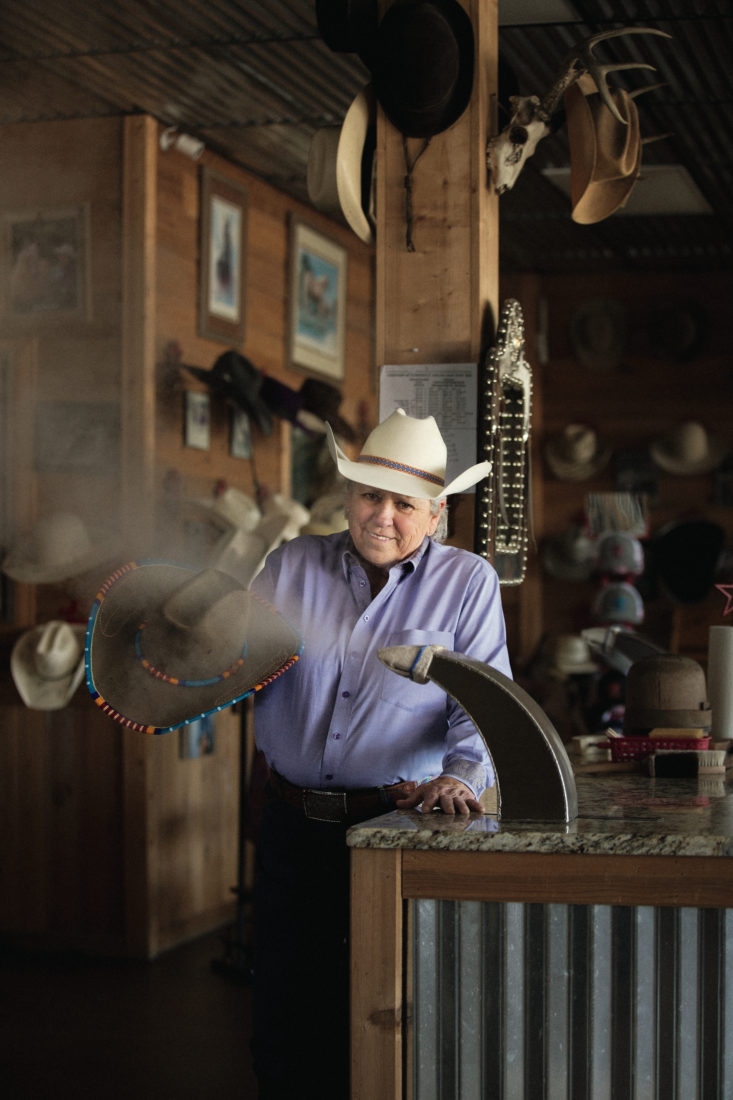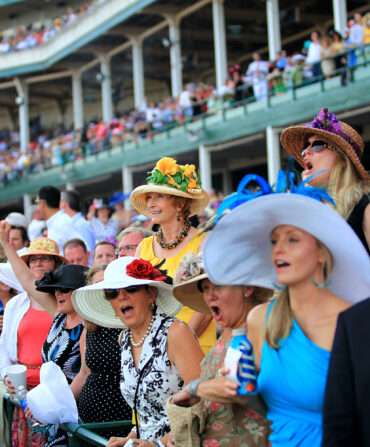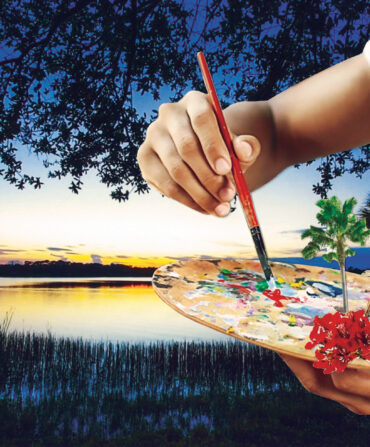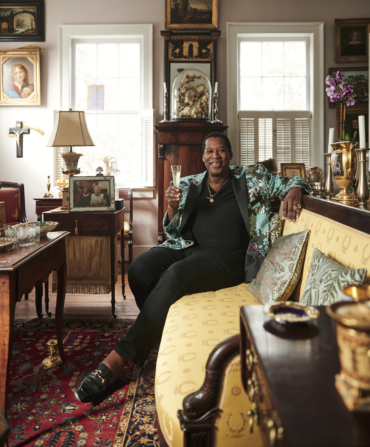Few hatters build truly custom pieces the way Shorty Koger does anymore. Her brass and cast-iron machines are at least as old as her parapeted 1930s-era saloon-style storefront in the Oklahoma City stockyards, where they sit, hissing and steaming and bobbing with rich felt. For one, the equipment hardly exists anymore—much less anyone who knows how to use it. “It’s hard to find somebody to make a hat,” says Koger, buttoned up to her chin in a Western shirt, her own tan cowboy hat expertly perched. “This whole business is a lost art.”
At Shorty’s Caboy (that’s prairie dialect for “cowboy”) Hattery, which serves as both factory and showroom, Koger and her team turn out high-end Western hats by hand, using an antique blocking machine to adjust the size and height of the crown, stitching in the sweatbands and lining, and ironing in the subtle distinctions in the “creases” (the divot on the top, the curve of the brim) that set apart a roper from a reiner from a rookie. Hats can be shaped to a customer’s specifications, from the specialized squared-off shape of a quarter-horse rider to a soft crown and wide brim look that’s more Derby Day than rodeo queen. Optional details include grosgrain ribbon, leather stitching, laser engraving, and colorful beadwork hand sewn by Chickasaw artisans. Woven straw hats in hues like ivory, cream, and black arrive with open crowns; Shorty’s custom shapes and sizes those, too.
Koger, whose given name is Lavonna, may be past typical retirement age but is still as sturdy as a stock horse with the swagger of a bull rider. (She used to buck for eight herself back in the day.) She started barrel racing as a child and became enamored with the cowboy lifestyle. At five years old, on a grocery trip to the rural town of Fairfax, she caught a glimpse of the old Western film actors Randolph Scott and Ben Johnson, an Osage County native, hanging around outside the Tall Chief movie theater, wearing colorful wild rags with their britches tucked into their boots. “They had the coolest-looking hats I ever saw,” Koger says. She wanted to look like that someday.
During her early years on the rodeo circuit, riding and working in sales for Western stores, she taught herself to shape and restore old hats on the side by shaking them over a hot teakettle. In 1990, at age forty-five, she connected with a local hatter—who also happened to be called Shorty—and bought his business. He and his mother gave her a crash course. “They were about the only ones who would help me,” she says, but today she gleefully claims she’s the only woman making custom cowboy hats without a man. “Men were always my worst critics,” she says, “but I decided to pay no attention to ’em.”
Each hat starts as fine fur from Europe—beaver, rabbit, mink—which gets felted into raw hat bodies at a Tennessee factory, where they emerge looking like slouchy, furry upside-down flowerpots, dyed in colors like Moss, Pecan, and Sahara. The Shorty’s crew of twelve sand off any semblance of the glossy fur by hand into a smooth matte—they start around ten hats a day, which take about five days and fifteen steps to produce apiece. “It’s all in the finish,” Koger says. “It’s gotta be perfect.”
The process may be a vanishing trade, but demand for the pieces, which start at $795, endures: Shorty’s has a six-month lead time. Koger prefers to fit clients in person (“That’s the only way to really do it,” she says), but those who can’t make it to the stockyards can order online; the shop will send a kit for measuring yourself. And while often a custom hatter may only gauge the width of the head, Koger’s method accounts for every curve, a care that has won her fans from hardworking ranchers to stars like Reba McEntire and Lyle Lovett.
She calls landing in the National Cowgirl Hall of Fame, though, her biggest honor. The group inducted her in 2021, alongside Oklahoma transplant and country music powerhouse Miranda Lambert. “It’s been a ride,” Koger says, but it’s not over. She has no plans to hang up her hat.








